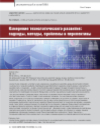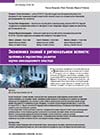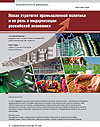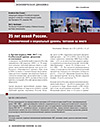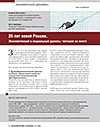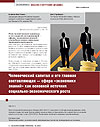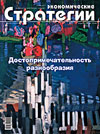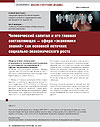Changing Technological Development: Approaches, Methods, Problems and Prospects
DOI: 10.33917/es-1.187.2023.26-35
Technological changes form the basis of modern economic development, however, in order to study their influence and features, as well as to develop control actions, it is necessary to adequately measure the level of technological effectiveness of the economy. The purpose of the study is to identify the limitations of existing approaches and methods for measuring technological development, indicating what prospects there are in terms of their improvement or the development of new ways to assess the level of manufacturability and emerging technologies. The methodology is based on the economic theory of technological development, statistical approaches to measuring the level of technological effectiveness of the economy, performance assessment, and comparative analysis is applied. The result is reduced to a reasonable position that the existing methods for measuring the level of manufacturability essentially do not reveal the true content of this concept, do not reflect the manufacturability of the economy. Thus, it is required to revise and introduce new accounting, measurement and statistical procedures covering the issues of technological development. The measuring apparatus for technological modes, the “knowledge economy” also requires perfection, which is proposed in this study.
By modes, it is important to measure the distribution of policy instruments and the structure of technologies in each mode, for which accounting for specific types of technologies and the construction of technological maps can be used. The “knowledge economy”, which symbolizes a high level of technological development, needs to be measured in its purest form by the volume of sectors responsible for the creation, transfer, replication and application of advanced knowledge. Evaluation of productive jobs needs to be revised — from measuring wages in the workplace, as it is today, to measuring the level of its automation and intellectualization.
References:
1. Glaz’ev S.Yu. Teoriya dolgosrochnogo tekhniko-ekonomicheskogo razvitiya [Theory of Long-term Technical and Economic Development]. Moscow, Vladar, 1993, 310 p.
2. Peres K. Tekhnologicheskie revolyutsii i finansovyi kapital. Dinamika puzyrei i periodov protsvetaniya [Technological Revolutions and Financial Capital. Dynamics of Bubbles and Periods of Prosperity]. Moscow, Delo, 2011, 232 p.
3. Sukharev O.S. Ekonomika tekhnologicheskogo razvitiya [Economics of Technological Developmen]. Moscow, Finansy i statistika, 2008, 480 p.
4. Khelpman E. Zagadka ekonomicheskogo rosta [The Mystery of Economic Growth]. Moscow, Izdatel’stvo instituta Gaidara, 2011, 240 p.
5. Shumpeter I.A. Teoriya ekonomicheskogo razvitiya. Kapitalizm, sotsializm i demokratiya [Theory of Economic Development. Capitalism, Socialism and Democracy]. Moscow, Eksmo, 2007, 864 p.
6. Antonelli C., Gehringer А. Technological change, rent and income inequalities: A Schumpeterian approach. Technological Forecasting & Social Change, 2017, vol. 115, pp. 85–98.



